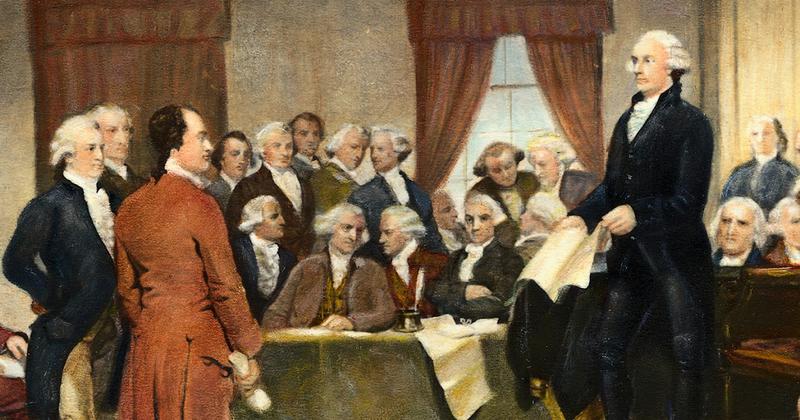The Founding Fathers’ Dream
📜 Vision for a New Republic
The Founding Fathers did not simply envision a break from British rule—they sought to establish something entirely new: a nation rooted in the sovereignty of the people. They believed deeply that rights such as life, liberty, and the pursuit of happiness were natural and unalienable. These rights were not granted by government—they preexisted it. The Founders' dream was to build a system where those rights were protected by written law, where rulers were elected, and where power was limited by the consent of the governed. This idea, radical at the time, would become the foundation of American democracy and influence nations around the world for centuries to come.
🏛️ Independent States, United Goals
In the years following the American Revolution, the 13 colonies saw themselves as independent states with their own identities, economies, and priorities. But the Founders recognized the need for unity if the new nation was to survive. The Articles of Confederation were a first attempt but proved too weak to bind the country together. Through passionate debate and painful compromise, the U.S. Constitution was crafted—a living document that balanced state and federal powers, embedded the rule of law, and created a framework strong enough to endure. The dream was not just independence, but interdependence, built on shared values and mutual trust.
⚖️ Checks and Balances
To guard against the tyranny they had just escaped, the Founding Fathers devised a structure of government that divided power across three branches: legislative, executive, and judicial. Each branch would be limited in scope but empowered to check the others, ensuring no one person or group could dominate. This system of checks and balances was revolutionary, and it remains one of the most enduring features of American governance. It reflects the Founders' understanding of human nature—they expected ambition and conflict, but designed a system that would turn that tension into stability rather than chaos.
🗳️ Power in the Hands of the People
The Founders believed that government must always remain accountable to the people it serves. In their view, a successful republic could only exist if citizens were informed, engaged, and morally grounded. They feared apathy more than disagreement, and saw civic participation—voting, attending public meetings, petitioning lawmakers—as vital to the nation’s survival. Unlike monarchies, where subjects had no say, the American system placed ultimate authority in the hands of everyday citizens. That trust in the people was central to their dream and still defines the country’s democratic ideals today.
📚 Education and an Informed Republic
Many of the Founders, particularly Thomas Jefferson, believed that public education was essential to maintaining freedom. They feared that without knowledge, the people would be vulnerable to manipulation and tyranny. Jefferson proposed a system of free schools so that future generations could learn about history, government, and their rights. This emphasis on education wasn’t just academic—it was practical. The Founders knew that an uninformed citizenry could not make wise decisions or defend liberty. Thus, part of the Founders' dream was a country where knowledge was a shield against oppression.
🙏 Religion, Morality, and Virtue
Although they advocated for religious freedom and the separation of church and state, many of the Founding Fathers believed that liberty could not survive without virtue. They emphasized personal responsibility, civic virtue, and moral restraint as necessary companions to freedom. George Washington, in his Farewell Address, warned that morality and religion were indispensable supports for political prosperity. The dream was not only to build a free society but a good one—where justice and virtue walked hand in hand with liberty and opportunity.
🌟 A Living, Evolving Constitution
The Constitution was never intended to be perfect or permanent in every detail. The Founders wisely built in the ability to amend it, reflecting their belief that future generations would face new challenges and ideas. The dream was not for a rigid structure, but a living framework that could respond to changing times while remaining true to its core principles. Every amendment—from abolishing slavery to granting women the right to vote—represents the fulfillment of the Founders’ dream through continued effort, sacrifice, and dialogue.
🇺🇸 The Dream Lives On
The vision of the Founding Fathers lives on in every peaceful election, every act of protest, every moment when citizens speak out or stand up. Their dream was not a finished product, but a challenge passed down through generations: to protect freedom, to expand justice, and to improve the nation while honoring its ideals. The dream belongs to all of us, and its survival depends not on politicians—but on the people. It is a responsibility, a privilege, and a sacred trust.

